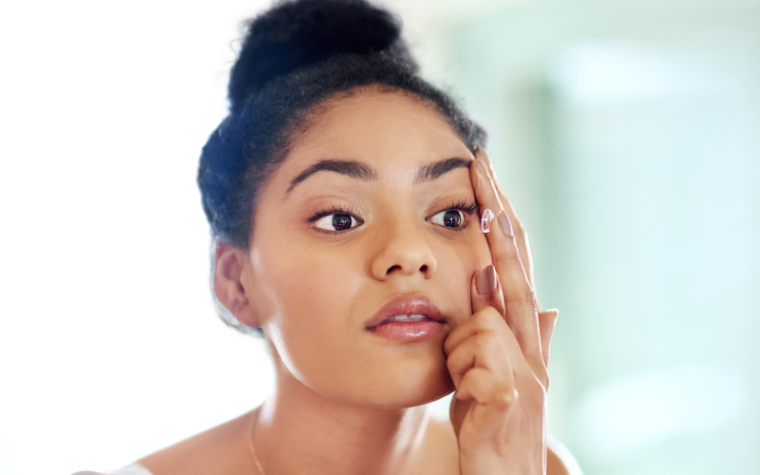All Categories
Featured
Table of Contents

Routine eye examinations are essential for maintaining great vision and discovering potential eye health concerns early. Nonetheless, the regularity of these exams can differ dramatically based upon a person's age, way of living, and total health. Recognizing the suggested routine for eye exams can aid make certain that people of every ages obtain ideal care and surveillance for their eye wellness.
Newborns and Toddlers (0-2 Years)
For infants and young children, eye examinations are important for identifying any type of prospective vision issues beforehand. The American Academy of Ophthalmology suggests that a kid's initial eye exam must happen at around 6 months old. During this first go to, the eye care specialist will assess the child's aesthetic advancement and look for any kind of apparent eye issues.Following this first examination, it is advised that youngsters have one more eye exam at age 3. This visit will certainly concentrate on analyzing the kid's general visual function, consisting of eye placement and the capability to track items. If no issues are discovered, the following examination ought to be arranged before the kid starts college, generally around age 5 or six.
School-Aged Kids (6-18 Years)
As soon as youngsters get to school-age child, regular eye exams need to be arranged every one to 2 years. Vision is essential for learning and development, and lots of institutions conduct vision screenings. These testings do not change a thorough eye examination by an eye treatment specialist.For youngsters entailed in sporting activities or tasks needing considerable visual focus, annual eye exams may be a good idea. Furthermore, if a kid shows indicators of vision troubles-- such as trouble checking out, squinting, or regular migraines-- a see to the eye medical professional should be set up asap.
Young Grownups (19-39 Years)
Youthful adults usually have fewer vision adjustments than older age, but normal eye exams continue to be crucial. The general referral is to arrange an eye examination every 2 years during this period. Nonetheless, people with specific risk variables-- such as a household history of eye disease, diabetes, or those that put on get in touch with lenses-- need to consider yearly eye examinations.Furthermore, those who invest substantial time on electronic devices might experience digital eye strain. If signs and symptoms such as dryness, tiredness, or obscured vision happen, it may be smart to see an eye treatment specialist sooner.
Adults (40-64 Years)
As people go into midlife, the likelihood of creating vision issues rises. Grownups aged 40 to 64 must set up eye tests every one to two years. This age may begin to experience presbyopia, an all-natural age-related condition that makes it testing to concentrate on close things. Eye exams can likewise help discover various other typical age-related problems such as glaucoma, cataracts, and macular degeneration.If people in this age have risk variables like high blood pressure or diabetes, they may call for more frequent evaluations to monitor their eye wellness carefully.
Elders (65 Years and Older)
For elders, normal eye examinations come to be even a lot more vital. The American Optometric Organization suggests that people aged 65 and older have an eye test at the very least as soon as a year. Older grownups go to a higher danger for different eye conditions, including cataracts, glaucoma, and age-related macular degeneration. Early discovery and therapy of these problems can avoid vision loss and improve the high quality of life.Final thought.
Understanding the appropriate timetable for eye examinations based on age is vital for keeping optimal eye health throughout life. From infants to elders, regular eye exams play an essential role in finding issues early and ensuring that vision continues to be sharp. By adhering to these guidelines and speaking with an eye care specialist, individuals can take positive steps toward preserving their vision and overall wellness. Whether it's a child's initial see or a senior's yearly exam, prioritizing eye treatment is an investment in lifelong health.Table of Contents
Latest Posts
Experience Waterfront Dining at Deauville Inn's Sundown Deck
Published Apr 18, 25
1 min read
Flexible Funding and Leasing Options at Hyundai of Akron
Published Apr 18, 25
1 min read
Simplify Your Financial resources with WyHy's Coinstar Solution
Published Apr 18, 25
1 min read
More
Latest Posts
Experience Waterfront Dining at Deauville Inn's Sundown Deck
Published Apr 18, 25
1 min read
Flexible Funding and Leasing Options at Hyundai of Akron
Published Apr 18, 25
1 min read
Simplify Your Financial resources with WyHy's Coinstar Solution
Published Apr 18, 25
1 min read